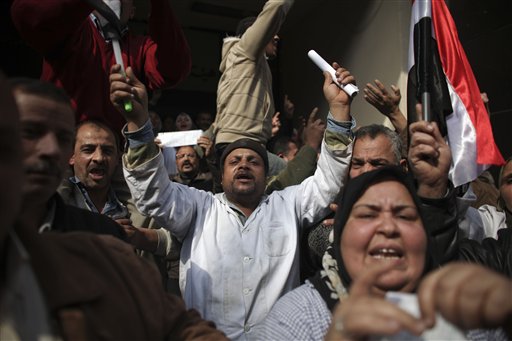When I look at the picture of the horrifically tortured Khaled Said I am sickened. A government willing to do this – perhaps to thousands of “disappeared” Egyptians over the past 30 years – to silence dissenting voice, to kill humanity, deserves to be reviled by the world.
Technology brought Said’s (and Egypt’s) horror to our eyes. It exposed what “stability” means there. No God-fearing person can support this terror. Nothing justifies that.
I must confess that I was initially torn by what was happening in Egypt, especially as it pertains to the use of Internet technologies to foment the uprising. I still harbor apprehensions on what lies on the other side of the wall. To defeat one atrocious regime only to have it possibly replaced with one bent on our destruction unsettles me greatly.
Yet, the default for humanity must be to let voices flourish, and lives to be lived in liberty, over the tyranny of “stability.” This may sound naïve, even offensive to some, in light of our post 9-11 world. I cannot, however, reconcile Said with American exceptionalism.
Doubtless, much work and hard choices remain for Egypt, her people, and the region. The rest of world’s democracies must become involved, too. As former Prime Minster of Spain, Jose Maria Aznar, put it in his recent WSJ piece, “The Arab World’s 1989?“:
Today, those of us who believe in open societies, in democracy and in freedom, have the obligation to help see that the changes unfolding in the region head in the right direction. In the direction that leads to the rejection of jihad as a political instrument. In the direction that leads to religious freedom, to pluralist democracy, to the acceptance of international law, to an opening to the world, and to respect for universal human rights.
Mass media technologies will command a front and center role in bringing about a free and more democratically-oriented country. History, of course, is replete with the use of such technology to make similar, positive changes. Our own American Revolution likely could not have occurred without the privately-owned printing press.
Inarguably, the best use of mass media technologies – from the printed word of Upton Sinclair’s “The Jungle,” to the pictures of death camp survivors being freed at the end of World War II, to the world watching Neil Armstrong step on the moon…to the videotapes of our own children being born – has powerfully shaped us. Sometimes for the worse. Sometimes for the better.
As the events in the Middle East unfold, I’m hoping for the latter.
The point here being – it isn’t automatic that what comes next will benefit the world. That simply getting rid of Mubarak is the end game, and what results, no matter what, is all good. Those who organize in this maelstrom must recognize their use of technology comes with a good measure of responsibility, too. If, as the newspapers tell us, the Internet brought about this change, it is incumbent on the purveyors of that technology to employ it wisely, modestly, not simply for disruption’s sake – to organize for true freedom over jihad, and for life over martyrdom.
To use it for anything less would represent a failure of those tools and the people who wield them. Thus, if “do no evil” means anything, as one Silicon Valley company exhorts itself (and the rest of the world), such non-evilness must result in a better world, not the end of the world.
I have faith that man and his use of the Internet can meet this challenge, boosting true stability through transparency, free markets, and free speech. It will also require vigilance, as well as the bravery to address all wrongs, even when they result democratically, in direct and honest ways.

COMMENTS
Please let us know if you're having issues with commenting.